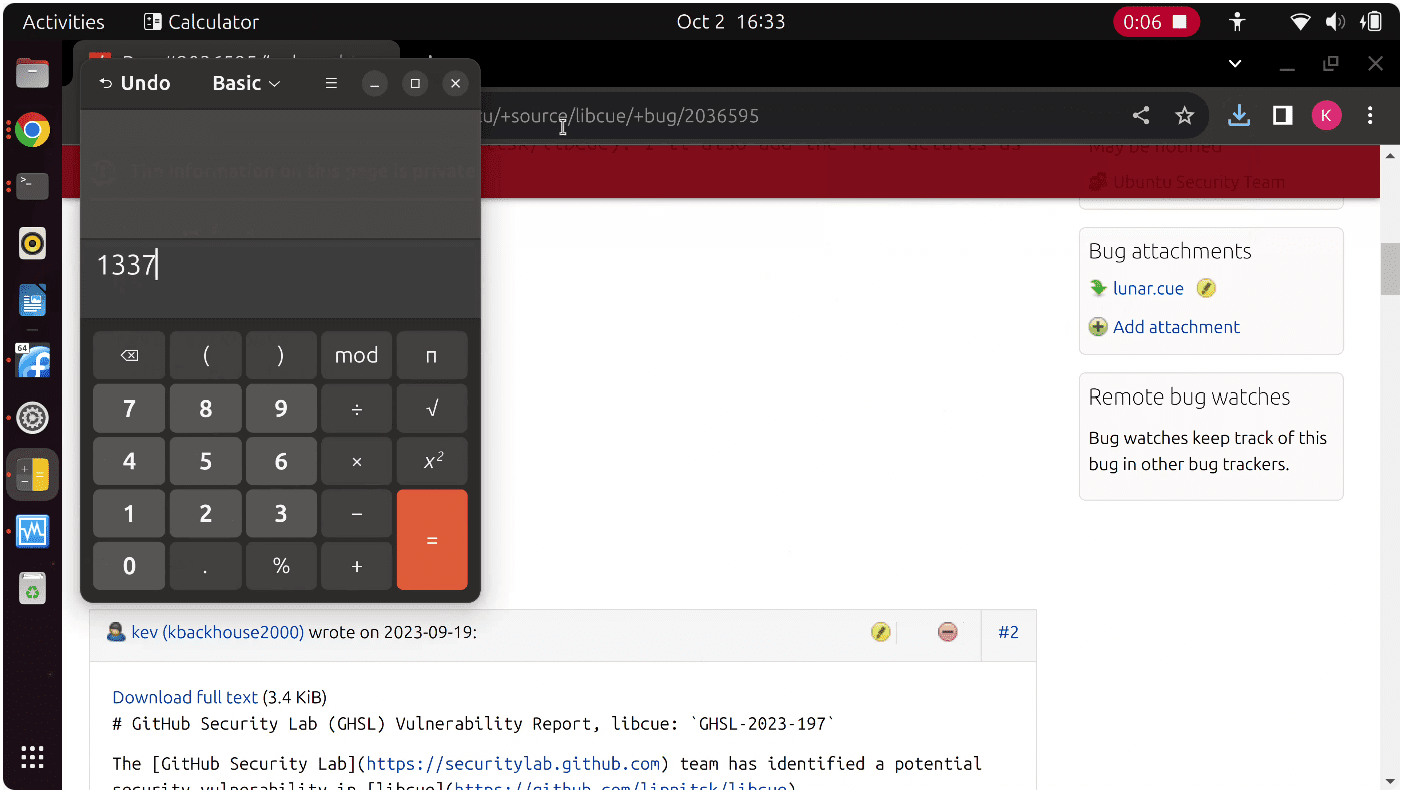CVE-2023-43641: Unmasking the RCE Risk in GNOME’s Libcue

Last week, the Linux community was fervently discussing the “Looney Tunables” vulnerability, which was publicized shortly after its disclosure.
On Monday, a fresh vulnerability, associated with memory corruption within the open-source library libcue, has been discerned in Linux. This flaw could potentially empower an attacker to execute arbitrary code on Linux systems employing the GNOME desktop environment.
Libcue, intricately crafted to analyze CUE files, is integrated into the Tracker Miners file metadata indexer and is inherently encompassed in the latest iterations of GNOME.
GNOME stands as a preeminent desktop environment adopted across myriad Linux distributions, including but not limited to Debian, Ubuntu, Fedora, Red Hat Enterprise, and SUSE Linux Enterprise.
Malefactors can exploit this deficiency, cataloged under CVE-2023-43641, to execute malicious code by harnessing Tracker Miners’ automatic indexer to refresh search indices on devices operating GNOME.
“Sometimes a vulnerability in a seemingly innocuous library can have a large impact. Due to the way that it’s used by tracker-miners, this vulnerability in libcue became a 1-click RCE. If you use GNOME, please update today!” posited Kevin Backhouse, the GitHub security researcher who unearthed this flaw, on October 9th.
Backhouse showcased his Proof of Concept (PoC) vulnerability in a visual presentation. However, the public release of this flaw will be temporarily deferred, allowing a grace period for all GNOME users to update and fortify their systems.
While finetuning is necessary for the vulnerability to function seamlessly across all Linux distributions, Backhouse affirmed that his rendition has been optimized for both Ubuntu 23.04 and Fedora 38 platforms, where it operates with impeccable reliability.
Although the successful exploitation of CVE-2023-43641 necessitates ensnaring potential victims into downloading and activating a malicious CUE file, we fervently urge administrators to expedite system patching and mitigate risks tethered to this security lapse. The ability to execute code on devices operating widely embraced versions of Linux distributions—including Debian, Fedora, and Ubuntu—is not to be trifled with.
Nonetheless, the existence of a protective resolution is indeed a silver lining, and it stands available to every user of vulnerable distributions. Prioritize updating your environment to shield your invaluable data.





